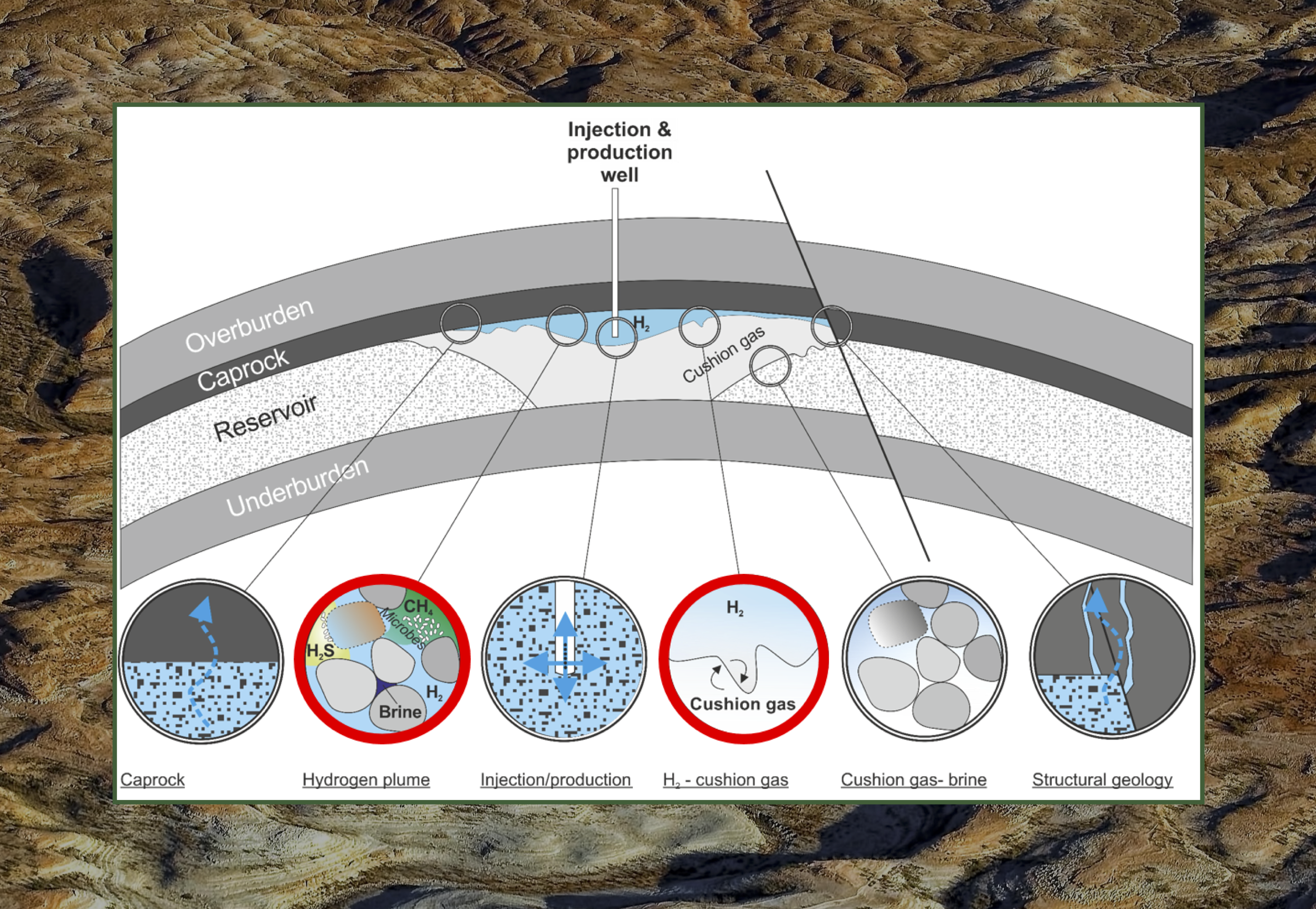
Tuesday, 29 March 2022 - 12.00-13.00 BST
Hydrogen - and its potential as a low-carbon fuel and vital tool in decarbonisation - is attracting more interest than ever before. Both the UK and Scottish Governments have ambitious plans to scale up production as a key plank of the net-zero transition. Yet much remains to be done to achieve such plans, including in the critical field of hydrogen storage. In this webinar, HyStorPor researchers discussed key learnings from their research on hydrogen storage, drawing on recently published journal papers.
Agenda:
- 12:00 - Welcome and introduction, Dr Katriona Edlmann
- 12:10 - Physico-Chemical reactivity of hydrogen under geological conditions of hydrogen storage, Dr Aliakbar Hassanpouryouzband
- 12:20 - Understanding the role of cushion gas in subsurface hydrogen storage, Dr Niklas Heinemann
- 12:30 - Site selection to minimise the risks for microbial growth and hydrogen consumption in geological hydrogen storage, Dr Eike Marie Thaysen
- 12:40 - Q&A discussions
VIEW THE RECORDING
Programme
Dr Katriona Edlmann
Katriona will provide an overview of the role and importance of hydrogen in climate mitigation and in the transition to net zero, and the current policy landscape. She will discuss why geological storage of hydrogen is so important and our existing experience of storing both natural gas and hydrogen to date.
Dr Aliakbar Hassanpouryouzband
Ali will discuss the thermophysical properties of hydrogen and how these might affect caprock sealing. He will also explain how adding impurities would change them. As well as summarising some 300 geochemical experiments, he will set out what is expected to occur happen geochemically after hydrogen is injected into the reservoir. Finally, he will discuss the capabilities of geochemical laboratories.
Paper 1: Offshore Geological Storage of Hydrogen: Is This Our Best Option to Achieve Net-Zero? | ACS Energy Letters
Paper 2: Thermodynamic and transport properties of hydrogen containing streams
Dr Niklas Heinemann
When storing hydrogen in porous formations, the injected cushion gas, the share of the injected gas that will not be recovered, is an expensive but necessary part of the storage operation. As with every upfront investment, determining the required cushion gas volume is crucial for accurate estimation of the storage cost. Niklas will discuss the impact of cushion gas on the storage operation and how the required volume of cushion gas is controlled by the geology of the storage site.
Paper 1: Hydrogen storage in saline aquifers: The role of cushion gas for injection and production - ScienceDirect
Paper 2: Enabling large-scale hydrogen storage in porous media – the scientific challenges - Energy & Environmental Science (RSC Publishing)
Dr Eike Marie Thaysen
Hydrogen is an electron donor for many subsurface microbial processes, which may have important implications for hydrogen recovery, gas injectivity and corrosion. We reviewed the controls on the three major hydrogen-consuming processes in the subsurface - methanogenesis, homoacetogenesis, and sulfate reduction - as a basis for estimating the risk of microbial growth in 42 depleted oil and gas fields in the North Sea and Irish Sea. These fields are potential candidates for geological hydrogen storage. The results show that, through careful site selection, the risk of adverse microbial effects in hydrogen storage in porous media can be reduced.
Paper: Estimating microbial growth and hydrogen consumption in hydrogen storage in porous media
Graphic by Heinemann et al., 2021
Photo by Ricardo Gomez Angel on Unsplash
